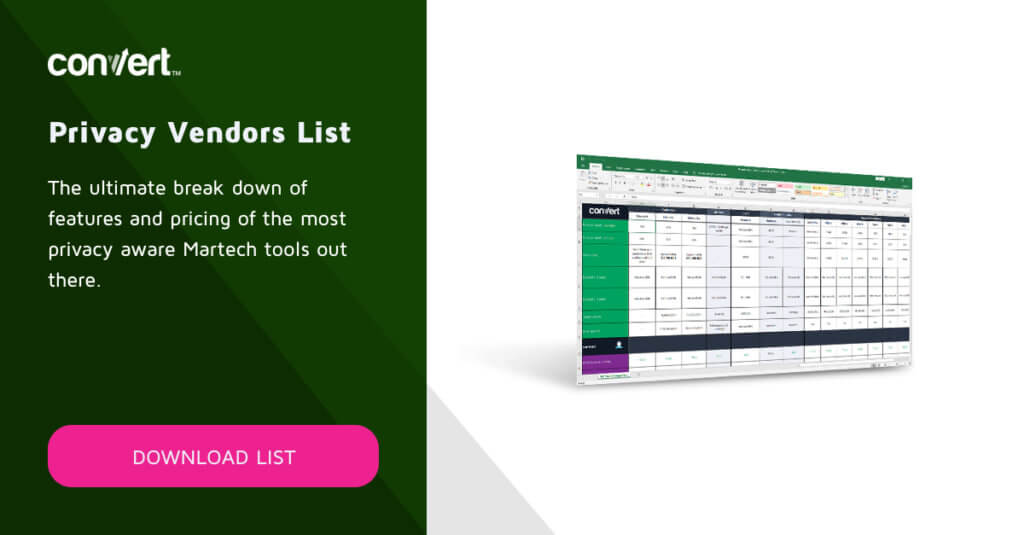The General
Data Protection Regulation is closely associated with the EU legislation which
protects the privacy of communication in the electronic form or e-privacy. A
research conducted by the European Data Protection Board discovered that GDPR
and e-privacy have common comprehensive rules that protect data.
The research referred to the formal directive made back in 2002 by the Directive on Privacy and Electronic Communications which issued without prejudice the e-privacy regulation, thus enabling it to make its way through the European legislative processes.
E-privacy Regulation Process
The progress
of the regulation of e-privacy has not been very smooth because it covers some
of the most argumentative and contested areas in today’s privacy and the
digital world which includes online advertising, cookies and marketing.
Today, the one
thing tech leaders should worry about is the difficulty in reconciling
regulation and innovation. Most organizations in the tech industry are still
doing their best to adjust to EU’s GDPR. And there is more to come in future. The
adoption of e-Privacy regulation is the next phase that is expected to be
published this year.
California Consumer Privacy
Act was enacted by lawmakers just recently and it is expected to take
effect in the year 2020. This Act is not as far reaching as EU’s protection
because it offers a number of loopholes to the industry however, it is expected
to go in a similar direction. These implementations will have similar effects
on future innovation and business operations.
Regulation vs. Innovation
Keep in mind
that if the European Union did not step in with strong regulations, cybercrime
would be happening at epic proportions now and would erode most online
businesses and stagnate
all the possibilities and opportunities that the internet has to offer.
Today, there
are about 23.14 billion devices connected to the internet all over the world. A
research conducted by Statista
found out that his number is expected to increase by almost 50 billion by 2025.
With this massive number of internet devices
connected all over the world, the internet will be highly vulnerable to data
breaching. Cybersecurity Ventures
predicts that cybercrime will cost people and businesses almost $6 trillion
every year by 2021. This is actually the greatest wealth transfer the world has
ever had. Innovations and incentives will be much more valuable and profitable
than all major illegal drugs put together.
There is a higher risk of cybercrime reaching epic proportions than has ever been witnessed before and this will definitely erode our trust and freedom to use the internet how we want. The more the personal and professional information about an individual or enterprise is uploaded on the internet, the more powerful the hackers and anti-socials get.
Personal and business information can be used against us and will eventually impact our reputation and our ability to operate with progress in mind.
The question thus is not whether regulations like the ePrivacy Regulation will stifle innovation. It is how can they be perceived as the container or framework within which responsible innovation and ethical out of the box thinking can be carried out, without causing harm to any stakeholders involved.
Regulations are Opportunities
As the popular
saying goes, with crisis comes opportunities. Assignment Holic UK reports that
tech companies should not think
of the set regulations as impediments, instead they should see it as an opportunity to expand and grow
in a safe and secure environment.
This is the
ideal time for them to be as innovative as they can. Tech leaders need to use
the right tools to empower themselves and protect their personal and corporate
information. And they also
need to set the tone for adoption of these regulations with the confidence that
they will only improve the marketplace and not become a bottleneck for
marketing or optimization.
Because with the inventive use of technology, turning a seeming obstacle like GDPR (or the ePrivacy Regulation) into a goodwill win is indeed possible.
Here is what our Head of Privacy, Dionysia Kontotasiou – who spreaheaded our GDPR drive – has to say about the journey of viewing the regulation as an impediment to embracing it as a strong component of the branding story at Convert.
We have found that thanks to GDPR, our work has become faster and more efficient because we are dealing with clean data and engaging with customers who actually want to hear from us.
Getting privacy right is a competitive advantage. We’re more likely to trust a service provider who values our privacy (beyond mere legal compliance) and is transparent about how our data is used. The GDPR requirements opened the door for us to review policies about what we tell customers regarding how their data is collected and processed. This transparency lead to deeper trust and more loyal customers.
With GDPR, data become more consolidated and accurate. Redundant, Obsolete, Trivial Data was eliminated. We could also reduce IT costs further by retiring any legacy data software and/or applications that are no longer relevant nor compliant
DIONYSIA
HEAD OF PRIVACY, CONVERT
Regulation
alone cannot achieve the goal of protecting the user fully. The right tools
have to be used in the right way.
Failure to
hold tech companies responsible for how they use their information will create
a predatory world instead of a safe and secure world. The world is whole and
complete with the digital and real world working together in harmony. There is
no digital world and real world. All the rules apply and the playing ground is
the same.
You should
always remember that the cloud does not serve us anymore and big data is huge
threat to our democratic and constitutional processes. We need to break the
cloud down into mist. Let’s get excited and ready to welcome smart data into
our hearts and minds.
Get Ready
Right now, we
should be focusing on novel technologies to authenticate, identify and encrypt
intelligence robots. This is the final yet crucial point in the digital world
if we want it to be sustainable and cooperative. There is an urgent need for us
to create efficient solutions and novels to distinguish human beings from
automated servers and robots.
This need will
be greater as internet bots and protocols related to the block chain market
start becoming prevalent. If this does
not happen, artificial intelligence will access our personal and enterprise
data and this will lead to unpredictable outcomes including financial losses
and stiff market competition.
The growing
digital economy will be sustained and improved only when innovations and
regulations start working together as one. Now is the time for tech developers,
essay writer for hire and engineers to
think of innovative ways to design by privacy so that the future can be safer,
brighter and much more secure.
Conclusion
The rapid
advancement of technology has paved way for many innovations that have
certainly improved our lives. As more people continue joining the crowded
space, the greater the importance of safety and security. It’s difficult to
know the intentions of a person in the digital space.
Therefore,
it’s very important for us to embrace the regulations being set and implemented
by lawmakers. At the end of the day, they are there to help us perform better.
If they had not been created, there would be no online space because no one can
work using a platform he or she doesn’t trust.
As we said
earlier, regulation is much more important than innovation today because
nothing can happen in the digital space without reliability. Regulation has
created millions of jobs online. Nowadays, we trust our business partners and
associates even if we’ve never met face to face.
This is the key to success today and in the future. The online platform has immense possibilities that need to be exploited in the right manner. Let’s embrace the changes that are happening and get ready for them before they catch up on us.


